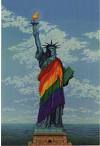
A Group Posting on LinkedIn cited by Marion Mulder of ING Global from Netherlands (here in full below) sent my mind tumbling into a political quandary. I wondered about the dichotomy between corporate pride in achieving these milestones while functioning in societies where there continues to be disdain, invalidation and inequality toward the LGBT citizenry.
This may not be the best analogy – but to illustrate my point – this is tantamount to Companies creating protocols to ensure they do not discriminate on the basis of color, making a point of patting themselves on the back with awards for being non-discriminatory and then functioning in a country where in effect there is apartheid.
It serves certainly as ‘food for thought’ because here in the USA and all around the world LGBT communities grovel for recognition to be equally entitled in their coupling while no contemplation has been given to corporations that are willing to continue to do business with Countries that hurt their LGBT communities through a myriad of human rights and civil rights infractions.
Nonetheless please note my criticism is not leveled at the profound voices of our Global Corporate Giants who bring increasing attention to the issues of inequality by providing validation through recognition of their LGBT employees and leaders, but rather at the political slackness that prevails despite corporate correctness and the progress in acknowledging diversity.
28 July 2009
The International Gay and Lesbian Chamber of Commerce reveals the most gay friendly corporations in the world: BT Group, IBM and The Dow Chemical Company
Copenhagen, Denmark, July 28th 2009 – The International Gay and Lesbian Chamber of Commerce (IGLCC) is pleased to unveil the results of the first edition of the International Business Equality Index. The Index is a measurement of the performance of multinational corporations in relation to Diversity and Inclusion issues specifically focusing on Lesbian, Gay, Bisexual and Transgender (LGBT) communities in the countries where they operate. The leading corporations are BT Group, followed by IBM and The Dow Chemical Company. The announcement was made at a press conference during the closing of the IGLCC Second Annual Congress in Copenhagen.The corporations participating in this year’s Index are: AMR (the parent company of American Airlines, Inc. and American Eagle), BT Group, Cisco Systems, The Dow Chemical Company, IBM, ING, Intel, KPMG, Kraft Food, Merck, Novartis, Philips, SAP, TNT and UBS. They represent 1.7 million employees in 227 countries and sales of USD 800 Billion a year.
“On behalf of BT, I am absolutely delighted with this recognition” said Ian Livingston, BT’s CEO.” As one of the largest communication companies in the world, we provide service to customers in more than 170 countries and employ well in excess of 100,000 people across the globe. Diversity must be, and is, at the heart of our business and having the policies and the practices in place to support the LGBT community is essential to our success.”
Anne Heal, BT’s Senior Champion for Sexual Orientation added, “BT has been providing same-sex partner benefits to employees since the early 1980s and will continue to look at ways in which we can ensure that our people can be ‘who they are’ at work without fear of discrimination or prejudice. The IGLCC award recognises the efforts of out HR community and our LGBT network, Kaleidoscope, in their determination to ensure that equality of opportunity is reality in our business. I am also delighted.”
“The findings of the survey on which the Index is based are somewhat mixed, but definitively encouraging,” said IGLCC Secretary General, Pascal Lépine. “The vast majority of respondent corporations have Diversity and Inclusion programs and most explicitly include LGBT issues. We see from this survey that most of these companies take sexual orientation and gender identity matters very seriously. However, full equality is still years or decades away.”
While corporations scoring high on the index are powerful examples of how diversity and inclusion programs can be very successful, the 2009 Index findings also point to a darker side: nearly 50% of global corporations participating in the survey do not have any LGBT Diversity & Inclusion managers; openly gay men or lesbians are hard to find among the ranks of management (fewer than one out of ten include gay men or lesbians in more than one of every sixteen countries they have a presence in); and, without regard to the level of internal focus on LGBT inclusion, these multinational companies are not proudly trumpeting their diversity programmes to the general public or the local LGBT communities through advertising or PR. In fact, only a handful of companies support local LGBT communities either through financial or in-kind support.
Despite these negatives, Mr. Lépine is optimistic. “To have such confidence shown towards our community makes me believe that there are still many good chapters to be written in the history of the international LGBT business community. It is especially important in these difficult economic and political times to salute all the participating corporations for their courage and example”, he said in today’s presentation. “But,” he continued, “we must be realistic and say that, even if today we see promise, there is much more work to be done. Far too often we see and hear of gay and lesbian professionals throughout the world that do not have access to basic employee rights and benefits just because of their sexual orientation”, added Mr. Lépine.
The Index is the product of an international committee that includes gays, lesbians and transgender professionals living and working in eight different countries from Europe and North America. The International Lesbian, Gay, Bisexual, Trans and Intersex Association (ILGA) and its European Region (ILGA-Europe) have played an instrumental role in the development of the program. “It is obvious that with the impact of globalization the LGBT community has its eyes on what corporations are doing at the international level, not just in one single country”, said David Pollard, Chairman of the Index Committee.
“BT Group’s outstanding commitment, policies and investment in LGBT diversity merits them the title of the most LGBT friendly corporation in the world. We challenge all multinationals to follow the example and leadership shown by those who saw a chance to be ahead of the curve. The IGLCC is proud of this historic moment and extends the invitation to all international corporations to participate in next year’s Index”, concluded Mr. Lépine.
To download a copy of the Index report, go to: www.iglcc.org/index2009 “
Melanie nathan





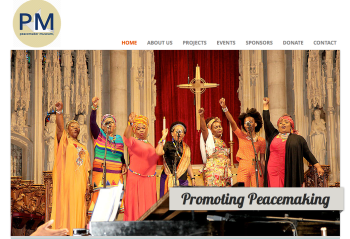




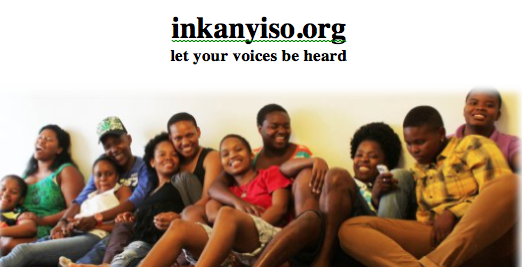






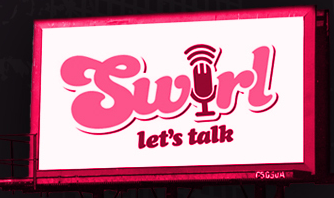
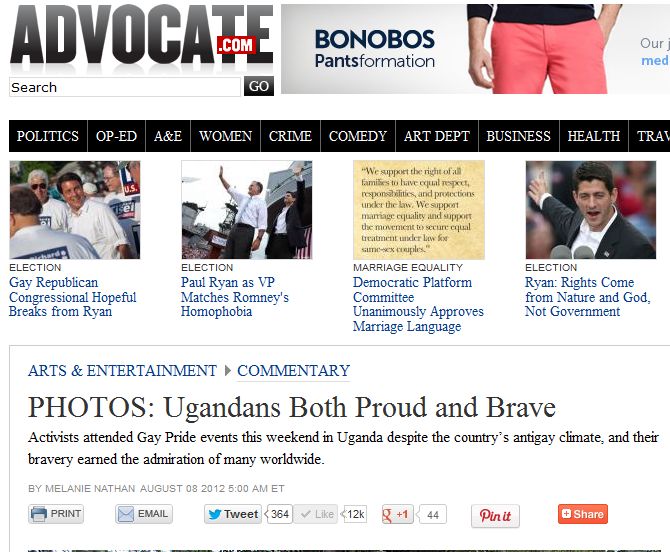
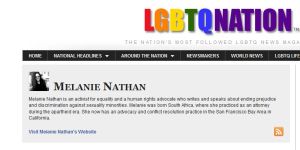
 PoochParkWear customizes hoodies and t-shirts, the good, the naughty, the in between, whether proud or quirky let them be seen. We also offer biker jackets, croc or pleather collars, a variety of collar charms, and our special Zinja beaded collars made by a co-op of HIV-positive South African women, the Sisonke women who weave the beads onto the collars.
PoochParkWear customizes hoodies and t-shirts, the good, the naughty, the in between, whether proud or quirky let them be seen. We also offer biker jackets, croc or pleather collars, a variety of collar charms, and our special Zinja beaded collars made by a co-op of HIV-positive South African women, the Sisonke women who weave the beads onto the collars.

Leave a Reply